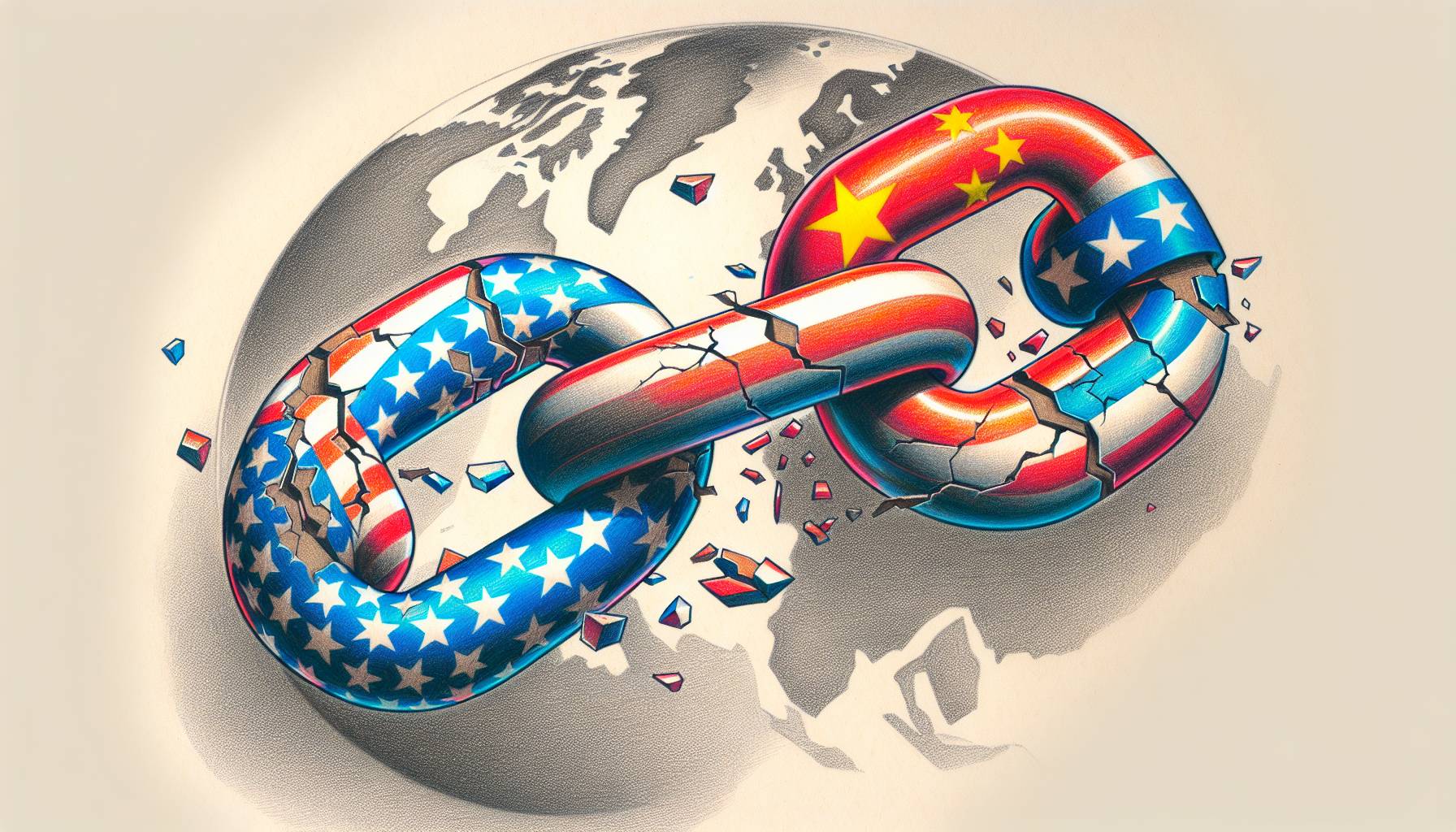The ‘decoupling’ of global economic powerhouses, China and the United States, stokes uncertainty in the global economic landscape. This separation process – due to reasons like political diversities, trade disputes, incompatible regulatory structures, or tech rivalry – might lead to fluctuating global market trends and transform the economical focal points worldwide.
The ‘decoupling’ could potentially influence the worldwide supply chain structures, and disrupt trading dynamics significantly. The opening left by these leading economies might be filled by budding economies, resulting in unanticipated trade alliances and a more intricate scenario. Yet, it’s hard to project the full impact of these changes, underlining the need for strategic actions by world leaders.
The economic ‘decoupling’ may result in less economic integration and interrelation. The subject has divided opinion among experts. Supporters argue that it will strengthen domestic industries and cut down dependence on foreign supply lines, endorsing resilience, and self-sufficiency. Critics insist that such a separation might incite inefficiencies, escalate costs, impede global cooperation and spark political instabilities.
Globalization has led to integrated global economies in recent decades.
Decoupling’s impact on global market dynamics
It’s uncertain whether the US and China will derail from this trend. Nevertheless, these planets of the global economy have the potential to reshape domestic and international markets drastically. The potential outcomes might include altering trade patterns, destabilizing financial markets, and redistributing wealth and power among nations.
The ‘decoupling’ of global players US and China comes with significant implications, not just in their local economic contexts but also for the worldwide market. The significant shift could further encourage countries to revise their relations and alliances, leading to a reformation of the global economic structure. Substantial ramifications like changes in immigration and education policies are also anticipated. The question is whether ‘decoupling’ could lead to a global economic slowdown or even a crash, heralding a global recession.
The discourse on the potential ‘decoupling’ is indicative of the complexities and tension that comes with economic integration and globalization. Although inconclusive, the conversation underscores critical aspects of our interdependent global economy. The future of international economic relations and cooperation could be reshaped based on the outcome of this ongoing debate.













